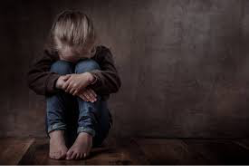Mommy, What Happened to Gramps?
- Gary Shockley

- Jun 12, 2020
- 2 min read
Updated: May 23, 2021

We know from the world around us that we can’t escape loss and death. It’s everywhere. Leaves die and fall from trees, roadkill line our highways, bugs are squashed, flies swatted and flowering plants shrivel and fade away.. Pets and people die. Tragedies ending is loss of life are in the daily news.
Kids are very much aware of this cycle of life. They participate in it daily. And they have lots of questions that are unspoken or when spoken, minimized or discounted.
“The very first task of mourning a loss (whether a person we love or a beloved pet) is understanding what happened to the one who died and why. Children can’t feel the pain of loss unless they have an understanding about what it means to die.” (Talking with Children About Loss. Maria Trozzi. Pg. 13)
In the case of children who mourn, it is the responsibility of an adult in their lives to tell the truth, in an age appropriate way, for them to understand.
We might like we are making things easier on children when we use confusing language about death but the opposite is true. Telling a child that we “lost” Gramps or that he “passed away” or worse yet is “sleeping”, is NOT helpful language. If he’s lost, let’s go find him! If we tell a child that Gramp’s death means he “sleeping” how on earth will that child ever be coaxed into going to sleep at night when they’re thinking, “If I close my eyes and go to sleep I may never wake up again either!”
Be truthful! Talk about what happened physically when Gramps died. “Gramps was very, very sick and his body stopped working. When someone dies because their body stopped working, they can’t breathe, eat, talk, walk, or go to the bathroom anymore. A dead person can no longer do anything like that.” The younger the child (five and under) the less likely they are to grasp the fullness of this because they understand death as separation from those we love AND temporary. The person who died might just show up for dinner tonight or walk in through the front door like they always did. All the more reason when questions about Gramp’s death arise to tell the truth in simple but clear terms as described above. As a child grows and develops the fullness of this will grow with them as well.
Once we explain the physical aspects of death, we should talk about what our family believes about what the spirit, the part of Gramps that made him, well, Gramps! “Gramps was so sick that his body stopped working. But we believe that Gramp’s spirit, the part of him that made him so much fun, and even a little grumpy at times, is with God now.”
Don’t be discouraged if your honest discussions with a child seem to have little effect. It’s perfectly normal for them to hear you and then move on to whatever it was they were doing. This does not mean they ignored you. They need their own time to process things and formulate their next set of questions. Stay truthful and, most important, available to them. You’ll make it through this together, I assure you!

.png)


Comments